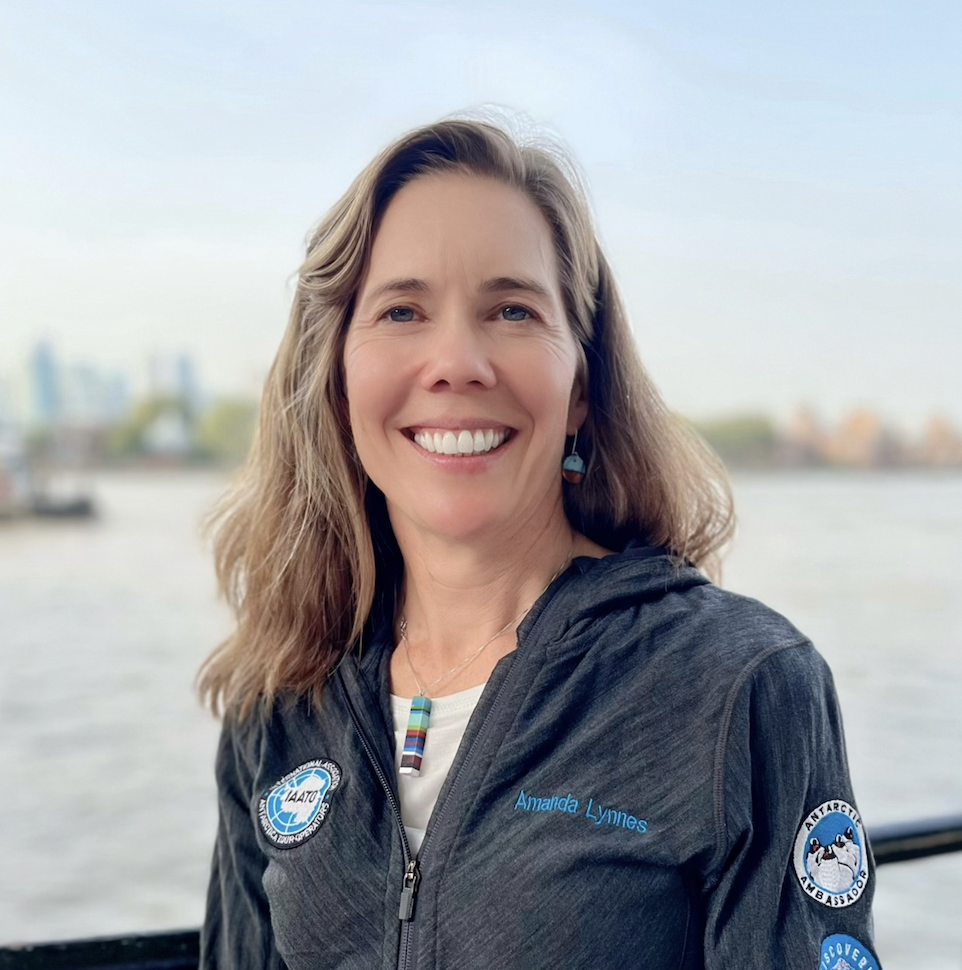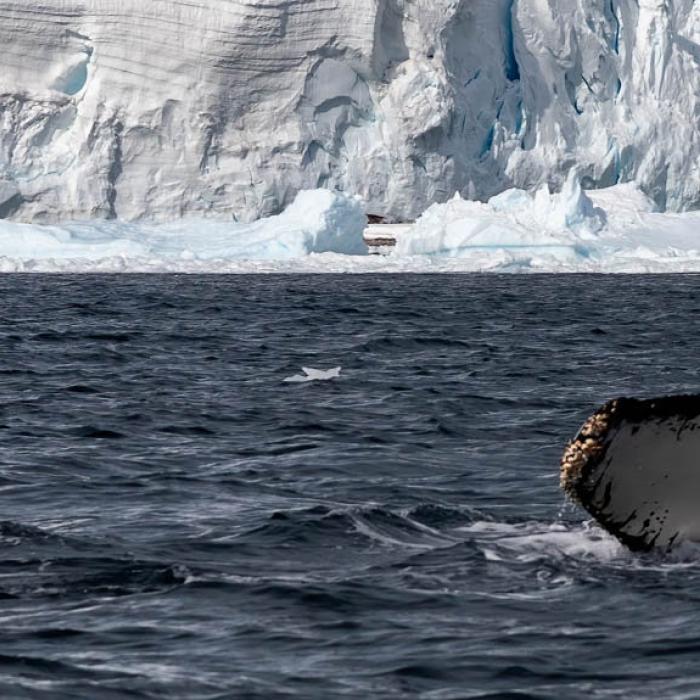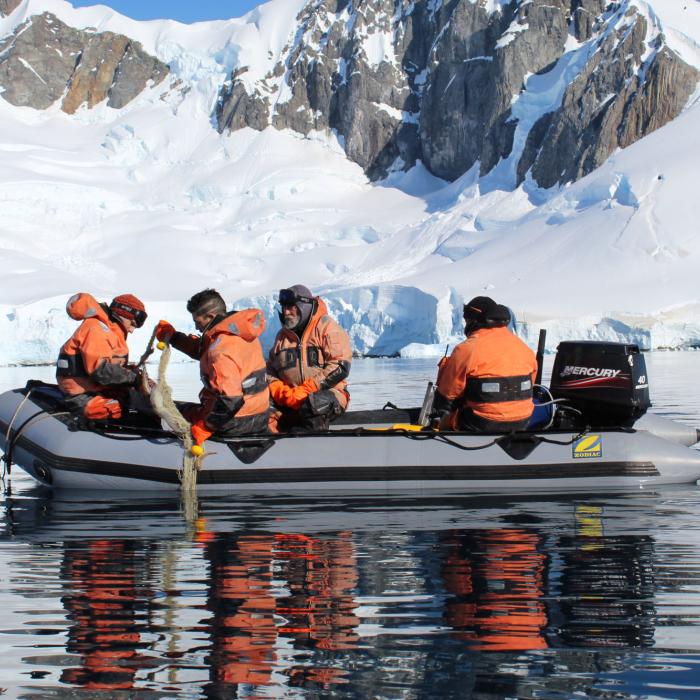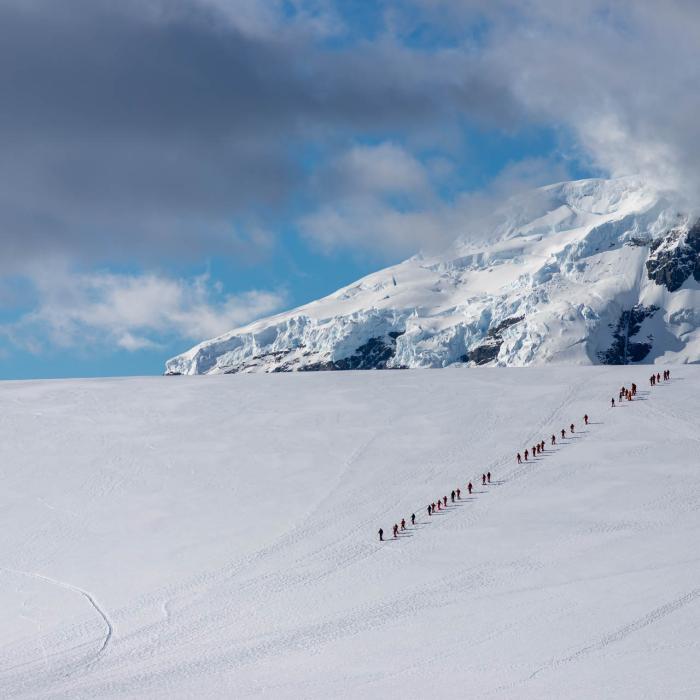
IAATO Members Mandate Acoustic Mitigation Measures to Protect Whales in Antarctic Waters
Action Highlights Tour Operators' Commitment to Antarctic Stewardship Ahead of World Oceans Day
The International Association of Antarctica Tour Operators (IAATO) has taken another significant step in marine wildlife conservation by mandating acoustic mitigation measures for all members operating in whale-rich waters around the Antarctic Peninsula.
This initiative aims to protect some of Antarctica’s rarest inhabitants, the B1 killer whale population, and reinforces IAATO’s broader commitment to science-based environmental stewardship.
Following successful voluntary trials during the 2023-24 and 2024-25 Antarctic seasons, IAATO members voted to formalise the Maritime Acoustic Awareness Zone (AAZ) as a mandatory operational protocol for the 2025-26 season.
“B1 killer whales rely heavily on sound to coordinate their hunting efforts,” said Maureen Lynch, IAATO’s Resource Management Coordinator. “By minimising acoustic disturbances in key habitats, IAATO is taking proactive, science-driven action to protect this rare population.”
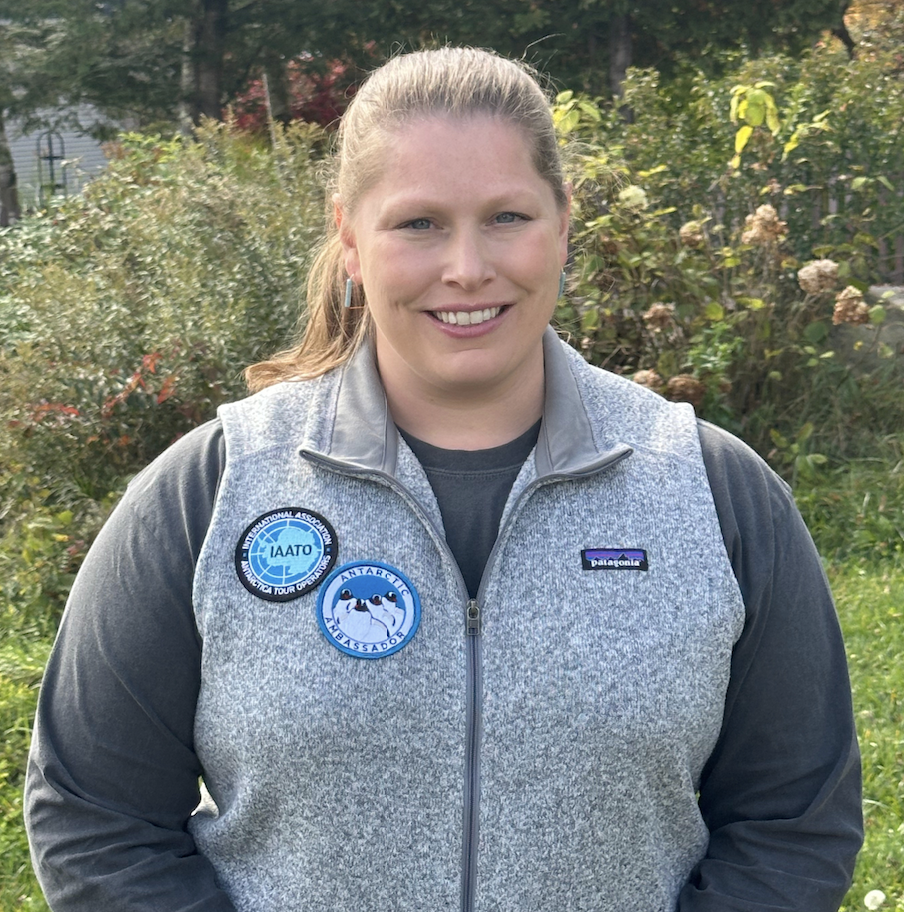
Located in the Gullet, a narrow channel at the northern end of Adelaide Island critical to the foraging behaviour of B1 killer whales, the AAZ was developed to reduce noise pollution from vessels that could interfere with whale communication and cooperative hunting.
IAATO vessels will reduce noise pollution within the AAZ by following the mandated acoustic mitigation measures, which include adhering to a no-go zone of 400 metres when whales are observed, allowing only one ship at a time in the area, reducing the number of engines to a minimum, reducing speed of vessels to a maximum of 10 knots, and avoiding the use of thrusters.
This decision aligns with IAATO’s long-standing dedication to safeguarding Antarctica’s unique ecosystems. Since its inception in 1991, the association has worked within the Antarctic Treaty System (ATS) to ensure that tourism activities support the preservation of the region’s natural environment.
As part of this work, IAATO engages with stakeholders such as the Commission for the Conservation of Antarctic Marine Living Resources (CCAMLR.) CCAMLR has designated two Marine Protected Areas (MPAs) in the Southern Ocean, the Ross Sea region and the Southern Orkney Islands’ southern shelf, with plans to create a network of them. In 2019, IAATO formally expressed its intent to contribute to the success of MPAs. The same year, member operators adopted procedures to mitigate strike risks from vessel operations in whale-rich areas, introducing geofenced time areas in the Gerlache Strait and adjacent waters. That commitment was followed up in 2021, with a mandatory 10kn speed restriction for vessels operating in two IAATO geofenced time areas in the Gerlache Strait and Marta Passage, and whale watching. Two additional geofenced time-areas in the South Shetland Islands and Elephant Island will include mandatory speed restrictions starting in the 2025-26 season following a successful trial during the 2023-24 and 2024-25 Antarctic seasons.
As the world prepares to mark World Oceans Day on June 8, IAATO’s action underscores the vital role collaborative working can play in protecting fragile marine ecosystems.
At this year’s IAATO Annual Meeting in Cascais, Portugal, members called on all stakeholders to continue working together to appropriately manage human activities in Antarctica, including the safe and sustainable harvest of marine living resources.
Amanda Lynnes, IAATO’s Director of Environment & Science Coordination, said: “IAATO Operators have a front-row seat to Antarctica’s incredible biodiversity – and a duty to preserve and protect it.
"As part of its stewardship ethos, IAATO advocates for the responsible management of human activities in Antarctica. As part of this, we will continue to work closely with all stakeholders while supporting science to inform conservation management and decision making for the region’s the long-term benefit."
